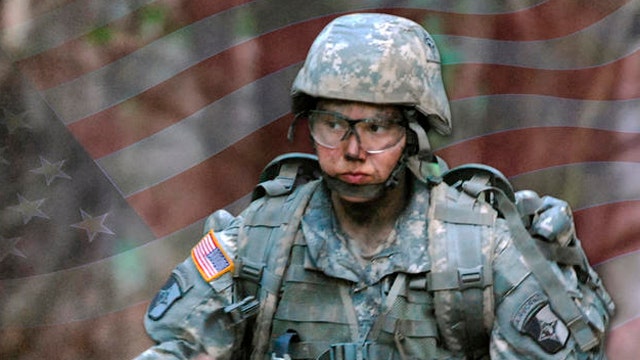For as long as Barack Obama has been president, the U.S. military has been a staging ground for social change. The incorporation of women in ground combat units, without much consideration or care for its impact, is just the latest example of an administration bent on using the military to advance its priorities regardless of consequences to mission readiness or combat effectiveness.
The next step in this process requires that each of the services submit their plans to the Secretary of the Defense, which only the Army has done so far, at which point Congressional review is sure to intensify. As it does, we must not write off the perspectives of seasoned military leaders and operators who might take issue with the integration plan, even though the White House, in its eagerness to implement its agenda, already has.
First a little history: In 2010, as the Pentagon weighed the repeal of “don’t ask, don’t tell,” a survey was ordered to measure and signal support or even indifference to a change in policy. The survey results were predictable given the politics of the situation and the pressure from the top, and the survey was showcased as if full evidence that the military, despite various naysaying leadership factions, was eager for change.
Now several years later, the military is confronted with the challenge of integrating women in combat specialties. For infantry units and other roles that are primarily tasked with locating and destroying the enemy-- to include special operations-- opening these roles to women would signify not only a major cultural shift, but it could undercut the cohesion and operability of warfighters at the tip of the spear.
The Marine Corps understood this. So they did the responsible thing and commissioned an independent, peer-reviewed study to determine impact at every level. None of the other services followed their lead, which explains why the Army, the Navy and the Air Force were so quick to fold in the face of White House pressure. When the Marines recommended keeping combat specialties closed to women, the findings of the report were immediately shot down as illegitimate. The Secretary of the Navy even went as far as to insult the men and women of the Marine Corps.
Likewise, the U.S. special operations community issued a report of its own, which was derived from internal surveys and focus groups. The report stated that, “overall, 85 percent of survey participants opposed letting women into their specialty, and 71 percent opposed women in their unit.”
The concerns and data-driven analysis of the Marine Corps and the special operations community alone would typically be enough reason for pause and more thoughtful consideration. But much different from “don’t ask, don’t tell,” these survey results and report findings were either swept aside or discredited because they contradicted the White House’s political agenda.
Evidently, to the White House, the findings within reports and surveys are subjects of convenience. They only matter when they conform to the broader agenda, otherwise they’re meaningless. The dismissal of the Marine Corps and special operations community in the gender integration process is proof of this fact.
It’s no wonder why the military views the president and his leadership team as so out of touch with their priorities. Of course, there’s no disputing the fact that women have served honorably, and many have experienced combat situations over the course of campaigns in Iraq and Afghanistan, but opening infantry units and combat specialties presents a much different challenge. It’s not that doing so is impossible, but if it’s going to happen, it needs to be done right.
As a Marine Corps officer who served in Afghanistan and Iraq, including in Fallujah, I have a deep sense of respect and appreciation for anyone who is willing to step forward and wear a military uniform—man or woman. In fact, roadside bombs have no gender preference, neither do bullets. So all military personnel must be adequately trained for their mission and be prepared to fight back, always. But in the infantry and other specialties, this is different than training to fight on foot as part of small cohesive units that experience combat with knives and bayonets, or bare hands.
While the Army saw the first two females graduate from its Ranger school, the Marine Corps has yet to graduate a single female from its officer infantry school, even though there have been many attempts.
What cannot happen — as many are rightly concerned will — is that the services will be forced to lower various specialty standards, in order to remain “gender neutral.” That is something the services must resist at all cost—as Congress should too.
It’s imperative that each job maintains the highest standards and continue developing the highest quality personnel, regardless of gender, quotas or any other benchmark.
The significance of this process requires more thoroughness and evaluation than what’s been given so far, including whether women will now be eligible for the selective service. That alone is sure to be an issue of contention. It’s also an issue the White House didn’t care to weigh.
The White House evidently picks and chooses who it listens to when it comes it comes to the military. But if survey results and data mattered in the effort to reverse “don’t ask, don’t tell,” then why is the same attention and respect not given to the concerns put forward by the Marine Corps and the special operations community when it comes to opening combat specialties?
They are among our fiercest fighters and it’s foolish not to take their concerns seriously.

